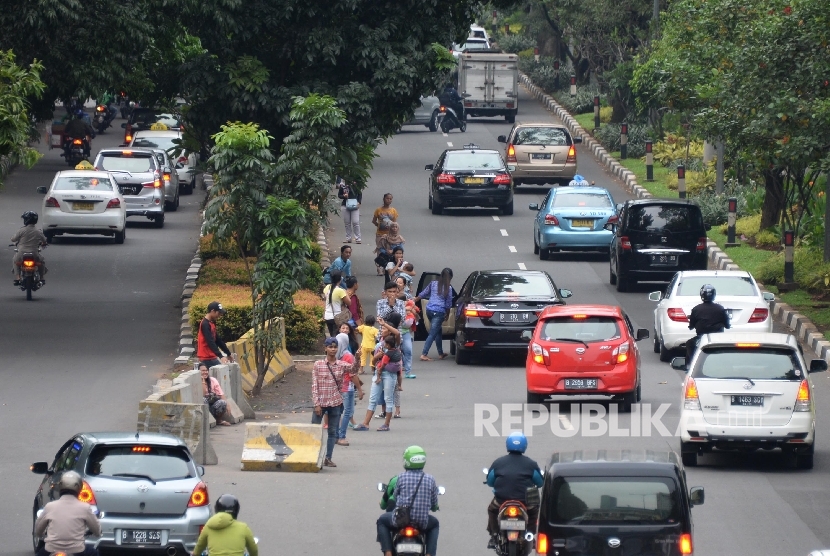REPUBLIKA.CO.ID, JAKARTA -- The Jakarta provincial government is now preparing two new policies to replace the city's current 3-in-1 road traffic policy that restricts vehicles with less than three passengers to pass through the capital's main roads.
"The 3-in-1 policy will be immediately revoked, and we have now prepared two new policies to replace it," Jakarta Governor Basuki Tjahaja Purnama (Ahok) stated at the City Hall, Jakarta, Monday.
According to Basuki, the two replacement policies are the enforcement of the odd-even number plate policy and the Electronic Road Pricing (ERP) system.
"I think it is better to implement the ERP system as it might generate income for the city that can be used to pay for public transport fare subsidies. Therefore, we are considering it," noted Basuki.
Basuki remarked that the 3-in-1 road policy in some of the capital's main roads had failed to be effective in reducing gridlock.
"We think that the (3-in-1) policy is no longer effective to reduce congestion as people tend to use jockies. So, it does not work effectively," Basuki pointed out.
Earlier, two foreign companies had conducted a preliminary test on the local government installed ERP devices on two different busy roads in Jakarta.
The ERP devices installed on Jalan Sudirman were tested by Kapsch Sweden, while the one on Jalan Rasuna Said, Kuningan, was evaluated by the Norwegian Q-Free.
According to the plan, the ERP implementation area will be divided into three sections. Area I will cover the Blok M-Kota Station, Jalan Gatot Subroto (Kuningan-Senayan), Jalan Rasuna Said-Tendean Tendean-Blok M, and Jalan Asia Afrika-Pejompongan.
Area II will comprise Dukuh Atas-Matraman-Manggarai-Jatinegara-Gunung Sahari and Kampung Melayu-Casablanca-Jalan Prof. Dr.Satrio-Tanah Abang.
Meanwhile, Area III will include Grogol-Roxi-Harmony, Tomang-Harmoni-Pasar Baru, Cempaka Putih-Senen-Gambir, Cawang -Pluit -Tanjung Priok, Cawang-Tanjung Priok, and Sunter-Kemayoran.


